Methodology
The study will use a mixed qualitative and quantitative approach to produce the results. The qualitative aspect will consist of a literature review to determine the measures that Egypt has taken to address the issue of COVID-19’s impact on female members of the informal sector. For the quantitative part of the study, members of that group answered a survey that attempted to evaluate its effect on their lives. Through a combination of these two approaches, the authors intend to obtain a comprehensive overview of the situation and determine whether the governmental response was effective at addressing the issue. The characteristics of the Egyptian informal sector will become more apparent. It will be possible to suggest measures that help improve the situation of people who comprise it more effectively.
The quantitative survey consisted of eight multiple-choice questions that the respondents had to answer. The first two clarified the respondent’s condition by inquiring about their education level and the choice to work in the informal sector. The second pair explored their family circumstances by asking about one’s male household members’ work status and the changes in their income since the beginning of the pandemic. The fifth question inquires whether the respondent or someone they know has lost their job as a result of the crisis. The sixth clarifies the reason why the respondent is not employed in the formal sector. The seventh asks whether they have sought any jobs other than their current occupation, and the eighth clarify whether they have contracted COVID-19. Through these questions, it is possible to obtain a detailed overview of the person’s situation and environment.
Due to the various circumstances such as the lockdown that was taking place while survey data was being gathered, it has been challenging to reach members of the target population. Due to typical economic circumstances, it was not feasible to reach them via Internet-based measures, and physical contact was necessary. However, many people were wary of physical proximity with a stranger, possibly because of the danger that an infection would present to them. As a result, the authors have been able to reach ten respondents, only four of whom agreed to fill out the questionnaire. The sample size is small and increases the likelihood that the broader population’s representation is not accurate. However, due to the general nature of the questions, it is likely possible to find trends that warrant further investigation through the inquiry.
The informal sector’s nature, which avoids many of the laws and is often illegal as a result, has led respondents to be worried about having information about them published. To that end, the authors have guaranteed that the interviews took place in conditions of total anonymity. The respondents were able to refuse to identify themselves if they were not comfortable doing so. Additionally, the authors have adhered to ethical research standards as defined by their institution and the broader scientific community. They explained the purpose and process of the study to the respondents in its entirety before receiving their agreement. The information regarding the participants also underwent additional efforts to anonymize them and ensure that no harm comes to the respondents. The scholarly work was conducted transparently, with no deception or exaggeration, and the authors do not have any affiliations, sources of funding, or conflicts of interest.
Due to the recent nature of the pandemic and the government responses to it, there is a lack of scholarly literature that studies the reaction in detail. As a result, the authors have had to rely on reputable news sources for information regarding the matter. To that end, they have utilized the Google search engine using the primary keywords “Egypt” and “COVID-19.” The secondary keywords used to refine the search and locate specific results were “government,” “response,” “informal sector,” and “aid.” The news filter was used to isolate websites that would be more likely to be reputable, though ultimately, each source was reviewed by the authors manually. Various articles were available regarding the situation in Egypt and government measures to address both the formal and informal sectors. However, the information available in them was limited and duplicated across sources, which has led the authors to select two that contained the entirety of the findings.
Due to the small sample size of the questionnaire respondent population, a sophisticated analysis is unnecessary, as it would not produce useful results. The results were processed manually, without the usage of statistical tools or specialized software. The authors have drawn conclusions from the data based on the responses and the surrounding context that was sourced from the qualitative analysis. This context was produced using context analysis for the two articles chosen for the research. Information regarding measures taken to help the informal sector was prioritized, but the authors also considered the descriptions of Egypt’s overall situation. As a result, there was a sufficient basis to formulate hypotheses about specific aspects of the findings. The findings of the research and the authors’ analysis of them are presented in the following section.
Findings
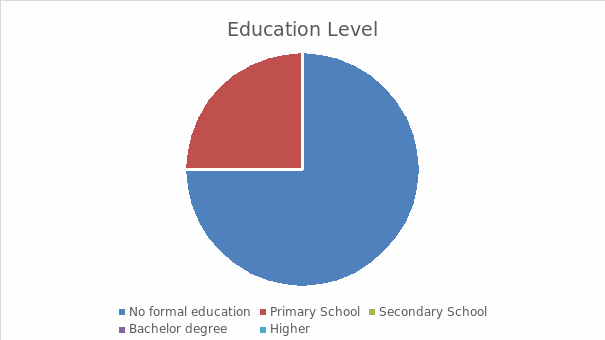
As figure 1 indicates, the respondents’ education levels are low, with three out of four having no formal education. As a result, it can be challenging for these people to find official employment, whether in circumstances where unemployment is low or ones where it increases dramatically, such as the current pandemic. Since the respondents are women, it is likely difficult for them to qualify for physical labor while many men may have that option. Having disconnected from the governmental system at an early age as a result of their non-attendance of school, these people can struggle to receive the help they require.
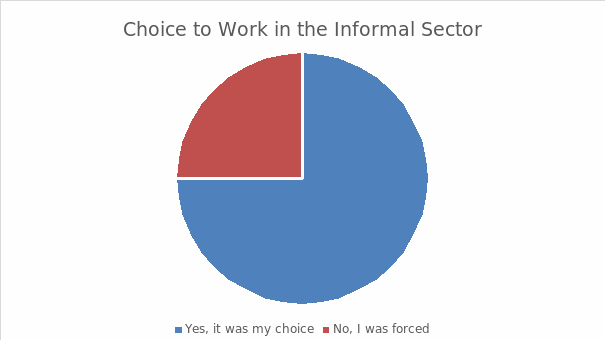
This question concerned the matter of whether the respondents’ decision to participate in the informal sector was voluntary. However, it only discusses direct coercion as opposed to the more indirect influence of one’s circumstances. Three of the women entered the informal sector voluntarily, likely as a result of financial need. However, one was forced to work by another, which can be interpreted in several ways. Due to the small sample size, the outlier may be attributed to the person’s traits, but the likelihood of violent coercion has to be considered.
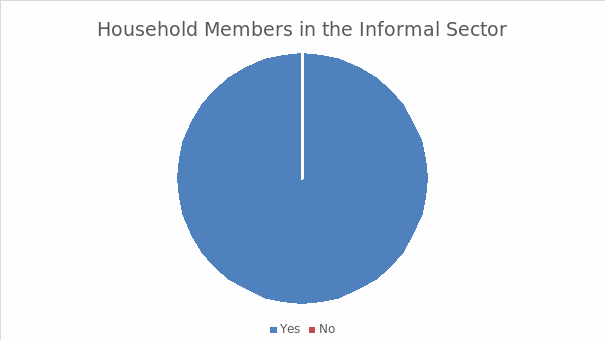
Every woman that has participated in the survey has household members that participate in the informal sector. The cause is likely the low wages in it, which do not enable a person to support the entire household. As a result, most or all members have to contribute to its continued survival, which involves going out to work regardless of the situation. As a result, members of the informal sector often do not have the option to work from home or take a break. They have to go out and risk becoming infected with COVID-19, which they can then spread in the household.
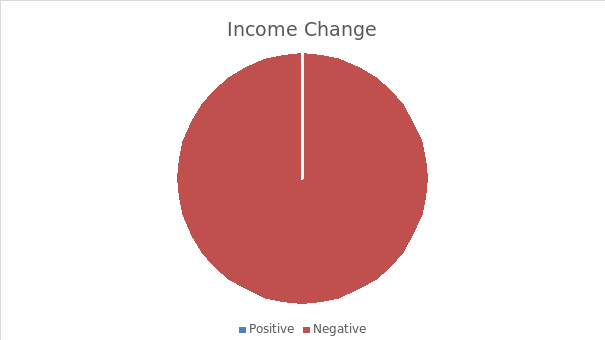
Figure 4 demonstrates that each respondent’s salary has decreased as a result of the virus. One likely reason is the economic downturn throughout Egypt that happened because of the illness and the associated shutdown. With less money in the economy, those without legal pay protections, such as informal sector workers, are affected the most. Additionally, they likely have fewer customers because they often rely on physical visitors, of whom there are fewer. All of these factors make it challenging for informal sector households to sustain themselves, which exacerbates the difficulties created by the pandemic.
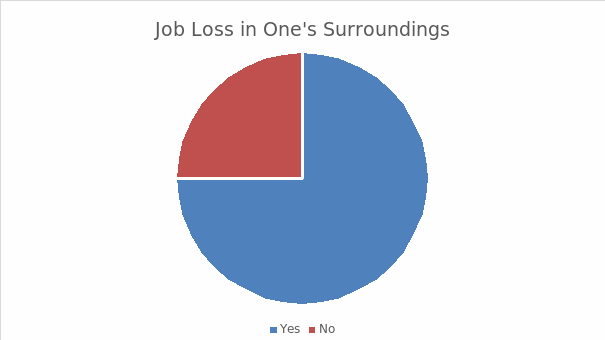
Figure 5 further demonstrates the financial issues in households and communities that rely on the informal sector. It does not specify whether the people who lost their jobs were officially employed. With job losses amounting to over 25% of the working population (“COVID-19 Toll”), it is possible that some of these people used to be employed. Regardless, the event is damaging to everyone around the person and further adds to the problems. The loss of a household member’s income with a formal job, which likely entails a substantially higher salary than that of the other members, can cripple its finances. As such, COVID-19 may be hurting these families indirectly in substantial ways.
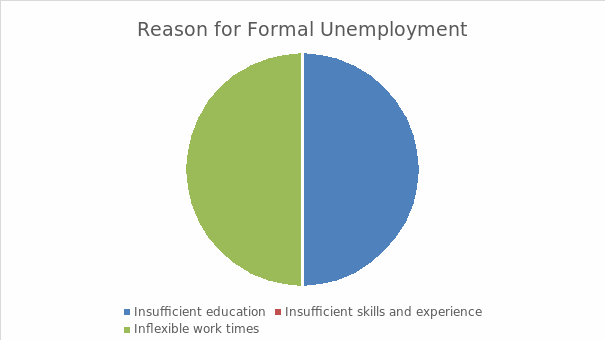
Figure 6 clarifies the reasons why the respondents work in the informal sector. Half do not have the education they require, as was theorized earlier in this section. However, no respondents believe themselves to lack the skills they would need for a formal position. It is possible to assert that the respondents who chose the first answer would also qualify for the second due to their lack of essential competencies. However, the other two respondents cited inflexible work times as the reason. They likely have duties at home, such as taking care of children, that makes it impossible for them to maintain a full-time schedule.
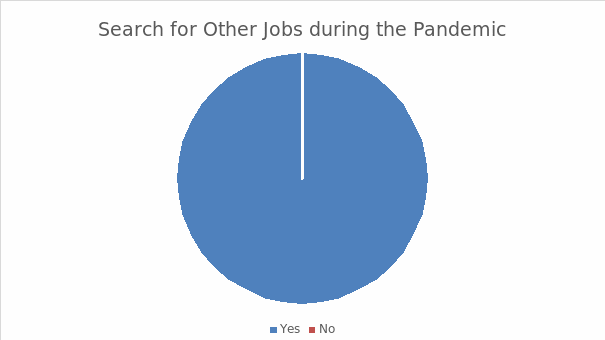
People in the informal sector are aware of their positions’ volatility and have searched for new jobs during the pandemic. As such, they may have had some degree of protection from the adverse economic outcomes of the surrounding events. However, with the influx of job searchers that has resulted from the unemployment discussed above, it is unlikely that there are enough informal positions in Egypt to accommodate everyone. As such, while the survey did not inquire as to the respondents’ success in their endeavors, such a question would likely have produced mostly negative responses.
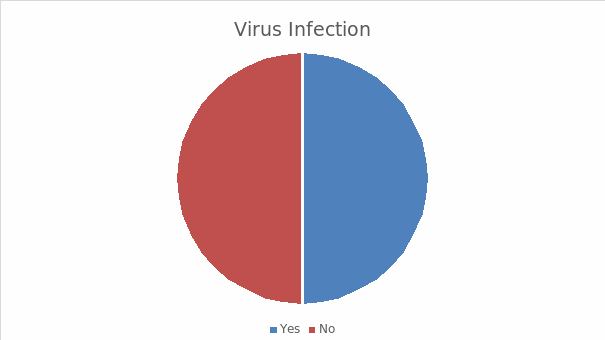
Per figure 8, half of the respondents have contracted COVID-19 throughout the pandemic, a substantially higher value than that for the rest of the population. With that said, the usefulness of this result is debatable due to the small sample size. There is a high possibility that it is skewed and does not represent the real situation in the population. Additional research is necessary before specific assertions can be made about the infection rate, but the considerations above imply that the group is at a higher risk of the condition.
The government has taken measures to ensure that the economy, including the informal sector, recovers from the virus. According to “COVID-19 Toll,” monthly payments of 500 pounds (equivalent to $31) have been distributed to informal workers, partially compensating for the income decline and job loss. Additionally, Rizk claims that the state expanded its safety net provisions and issued eighteen million new family ration cards to help people address their essential needs. These measures should help informal workers address some of their problems and better respond to the crisis in long-term outcomes. However, the people will likely have to gather at centralized locations to claim the food, which can create opportunities for the spread of the virus.
With that said, the government’s response does not directly address COVID-19, possibly due to a lack of resources. Rizk notes that informal workers, who constitute over 60% of Egypt’s workforce, have traditionally had poor healthcare access, particularly due to its low ratio of public to private medical spending. As a result, they would be in danger of being infected by COVID-19 and spreading it to others. Moreover, the severity of the disease would be enhanced in the absence of appropriate care. As such, an effective set of government measures should incorporate improving access to treatment for the informal sector as part of the particularly endangered population, which appears to be absent at the moment.
Works Cited
“COVID-19 Toll on Jobs, Incomes Laid Bare in Egypt before Reopening.” Gulf News, 2020, Web.
Rizk, Nagla. “Vulnerabilities Exposed: COVID-19 and Informal Livelihoods in Egypt.” Medium, 2020, Web.